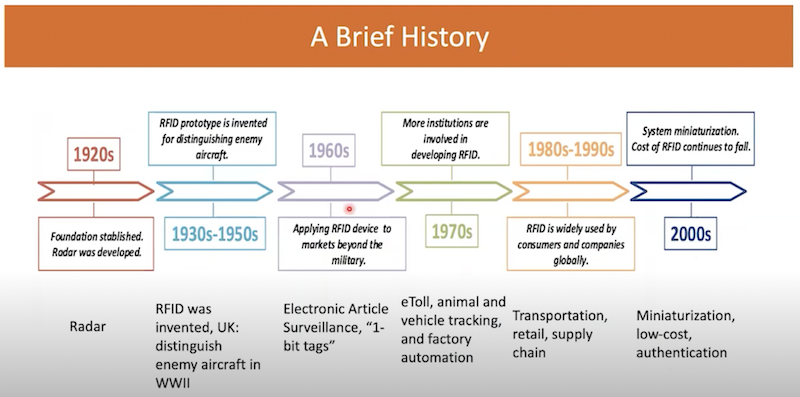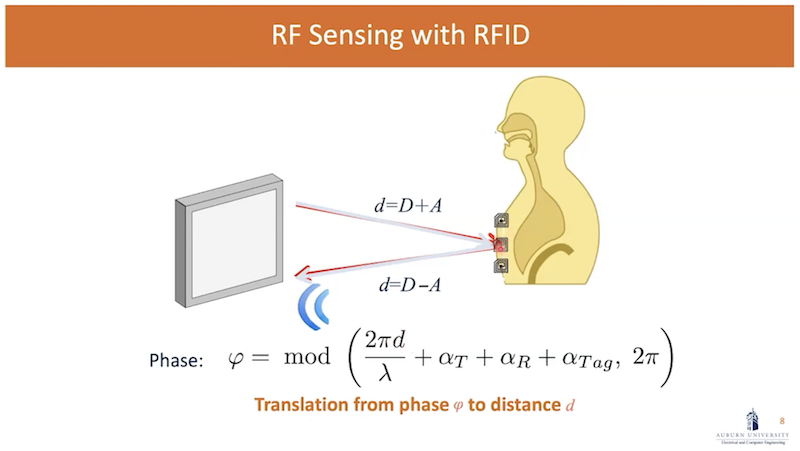EAI Distinguished Lectures
Prof. Shiwen Mao for EAI as a part of our Distinguished lectures program presents: RFID-based human activity sensing: Challenges, solutions and a case study.
Based on the research paper on RFID-Pose: Vision-aided 3D Human Pose – Estimation with RFID, Professor Shiwen Mao provides us with an EAI Distinguished Lecture on the topic of RFID-based human activity sensing.
Learn more about Radio Frequency Identification Preliminaries, RFID based sensing and how it works, the related Challenges and solutions, the Case study monitoring a human skeleton, and the Conclusions.
Abstract
In recent years, human pose tracking becomes an important topic in computer vision. To improve the privacy of human pose tracking, there is considerable interest in techniques without using a video camera. To this end, RFID tags, as a low-cost wearable sensor, provide an effective solution for 3D human pose tracking. In this paper, we propose RFID-Pose, a vision-aided realtime 3D human pose estimation system, which is based on deep learning assisted by computer vision. The RFID phase data is calibrated to effectively mitigate the severe phase distortion, and High Accuracy Low Rank Tensor Completion (HaLRTC) is employed to impute the missing RFID data. The system then estimates the spatial rotation angle of each human limb, and utilizes the rotation angles to reconstruct human pose in realtime with the forward kinematic technique. A prototype is developed with commodity RFID devices. High pose estimation accuracy and realtime operation of RFID-Pose are demonstrated in our experiments using Kinect 2.0 as a benchmark. Index Terms—Radio-frequency Identification (RFID), Computer Vision (CV), Human pose estimation, High Accuracy Low Rank Tensor Completion (HaLRTC), Deep Learning.


Professor at Auburn University and Earle C. Williams Eminent Scholar, Fellow of the IEEE, Dept. ECE, Prof. Shiwen Mao’s research includes topics like wireless networks, multimedia communications, and smart grid. In this lecture, Prof. Mao presented his insights on the topic of Radio Frequency Identification-based human activity sensing, based on his IEEE research paper on RFID-Pose: Vision-aided 3D Human Pose – Estimation with RFID.
The honorable Distinguished lectures program serves as an inspiration featuring great talks by the world’s most prominent researchers. Let us introduce to you our featured world’s top speakers presenting a topic as our distinguished guest lecturers.
_____
In the EAI’s open-door community, you, as a researcher, also have an opportunity to become a Distinguished lecturer presented to our 150 000 subscribers. An EAI Distinguished Lecture is not only an honor, it’s also an opportunity to bring your topic to other industry representatives arranged by the EAI. One of the easiest ways to be recognized and get this opportunity is by actively presenting and being recognized through our EAI Compass voting system during conferences. Best community-voted presentations are going to be included in consideration for the EAI Distinguished Lectures program.

